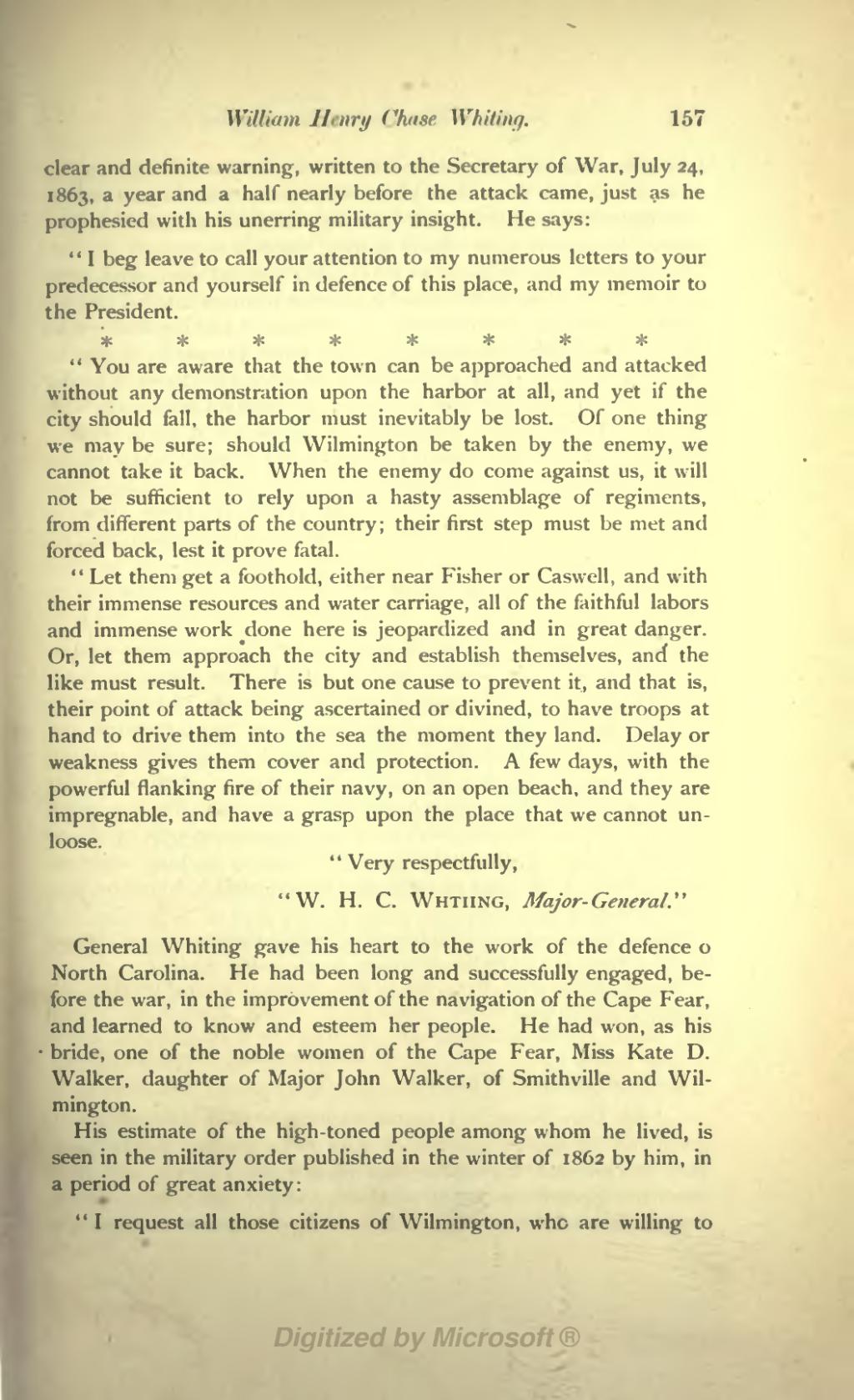\\',II;,IIH 1/i'in'i/ f '/<'/. \\'/ii/in(/. 157
clear and definite warning, written to the Secretary of War, July 24, 1863, a year and a half nearly before the attack came, just as he prophesied with his unerring military insight. He says:
" I beg leave to call your attention to my numerous letters to your predecessor and yourself in defence of this place, and my memoir to the President.
- # *
" You are aware that the town can be approached and attacked without any demonstration upon the harbor at all, and yet if the city should fall, the harbor must inevitably be lost. Of one thing we may be sure; should Wilmington be taken by the enemy, we cannot take it back. When the enemy do come against us, it will not be sufficient to rely upon a hasty assemblage of regiments, from different parts of the country; their first step must be met and forced back, lest it prove fatal.
" Let them get a foothold, either near Fisher or Caswell, and with their immense resources and water carriage, all of the faithful labors and immense work done here is jeopardized and in great danger. Or, let them approach the city and establish themselves, and the like must result. There is but one cause to prevent it, and that is, their point of attack being ascertained or divined, to have troops at hand to drive them into the sea the moment they land. Delay or weakness gives them cover and protection. A few days, with the powerful flanking fire of their navy, on an open beach, and they are impregnable, and have a grasp upon the place that we cannot un- loose.
' ' Very respectfully,
"W. H. C. WHTIING, Major- General:'
General Whiting gave his heart to the work of the defence o North Carolina. He had been long and successfully engaged, be- fore the war, in the improvement of the navigation of the Cape Fear, and learned to know and esteem her people. He had won, as his bride, one of the noble women of the Cape Fear, Miss Kate D. Walker, daughter of Major John Walker, of Smithville and Wil- mington.
His estimate of the high-toned people among whom he lived, is seen in the military order published in the winter of 1862 by him, in a period of great anxiety:
" I request all those citizens of Wilmington, who are willing to
